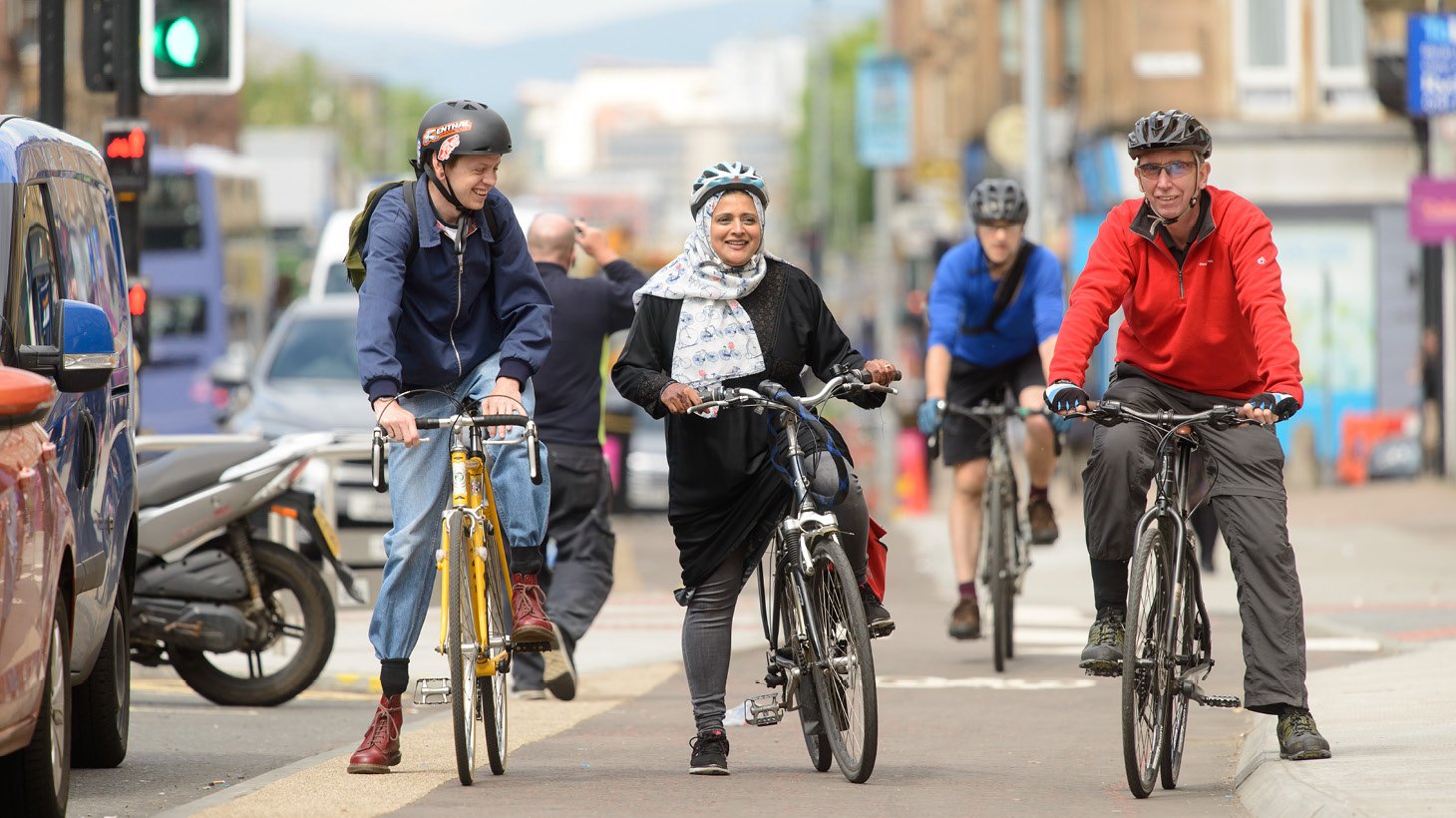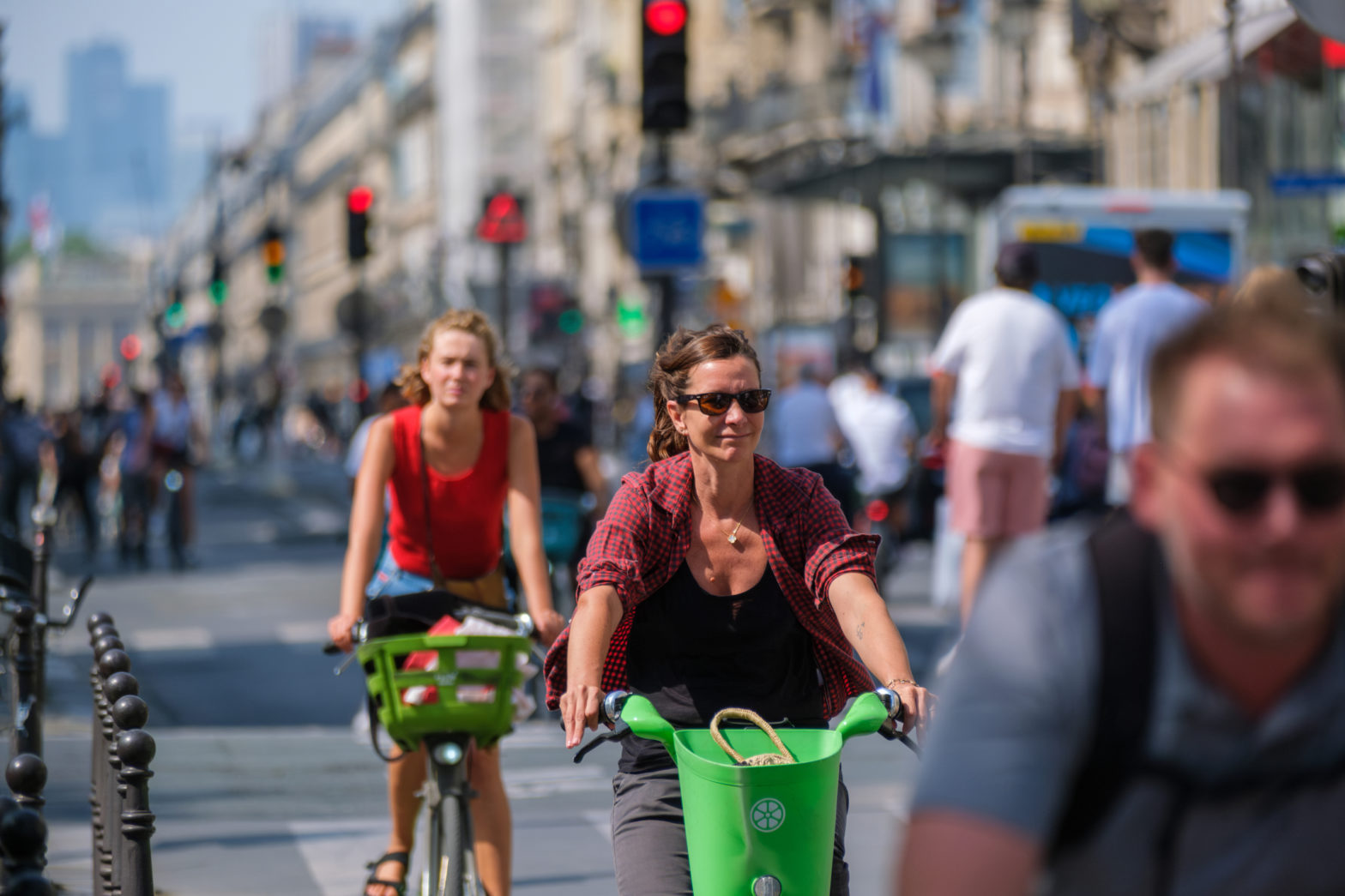
Photo: Sustrans
Active travel worth £36.5 billion to UK economy, says report
24 October 2022
by Christopher Carey
Walking, cycling and wheeling were worth £36.5 billion (US$41.2 billion) to the UK economy last year, according to a new report from active travel non-profit Sustrans.
In its Walking and Cycling Index, the charity says that in 2021 active travel created £6.5billion in economic benefit across the 17 urban areas it surveyed. Extrapolated UK-wide, this equates to an overall annual benefit of £36.5billion.
The index revealed that people who walk to the high street spend up to 40 percent more in shops than those who drive, largely due to the amount of time spent there.
It also found that physically active people take 27 percent fewer sick days each year than their colleagues, and cycling and walking infrastructure boosts housing developments – giving people more choice in how they travel and connecting them to work and education.
“It’s clear that active forms of travel, such as walking and cycling, bring in billions of pounds of economic benefit,” said Xavier Brice, CEO of Sustrans.
“Plus, as people are hit by the cost of living crisis, affordable ways of getting around are critical.
“People must have the opportunity to make the active travel choice instead of expensive car use, to boost people’s spending power for the benefit of the economy and our hopes of growth.”
Funding plea
With the findings, the charity and a broader group of organisations have issued a plea to the UK government to protect the £4 billion funding pot earmarked to help ‘level up’ walking and cycling across the country.
In a letter signed by members of the Walking and Cycling Alliance, the AA, CPRE, Brake, the Road Safety Foundation, the Urban Transport Group, and the Federation of Small Businesses (FSB), the consortium is calling for protection of the cycling and walking budget already committed in the second Cycling and Walking Investment Strategy 2022.
Jonathan Bray, Director of the Urban Transport Group, said: “In the face of the dual crises of the cost of living and climate change, we need to ensure that people can make more short journeys on foot or by bike wherever possible.
“A continuing commitment to a substantial and long-term investment programme in high quality cycling and walking infrastructure is vital to achieving this.”
At the height of the pandemic in 2020, the National Cycle Network alone carried 4.9 million users over 764.8 million trips.
As part of its net zero commitments, the UK government has set a target for 50 percent of all journeys in towns and cities to be walked or cycled by 2030.
“It is high time we stopped pitting motoring against walking, wheeling and cycling and instead realise the benefits that long-term government investment for active travel can have for economic growth and to support people on low incomes through the cost of living crisis,” added Brice.
Image: Sustrans







